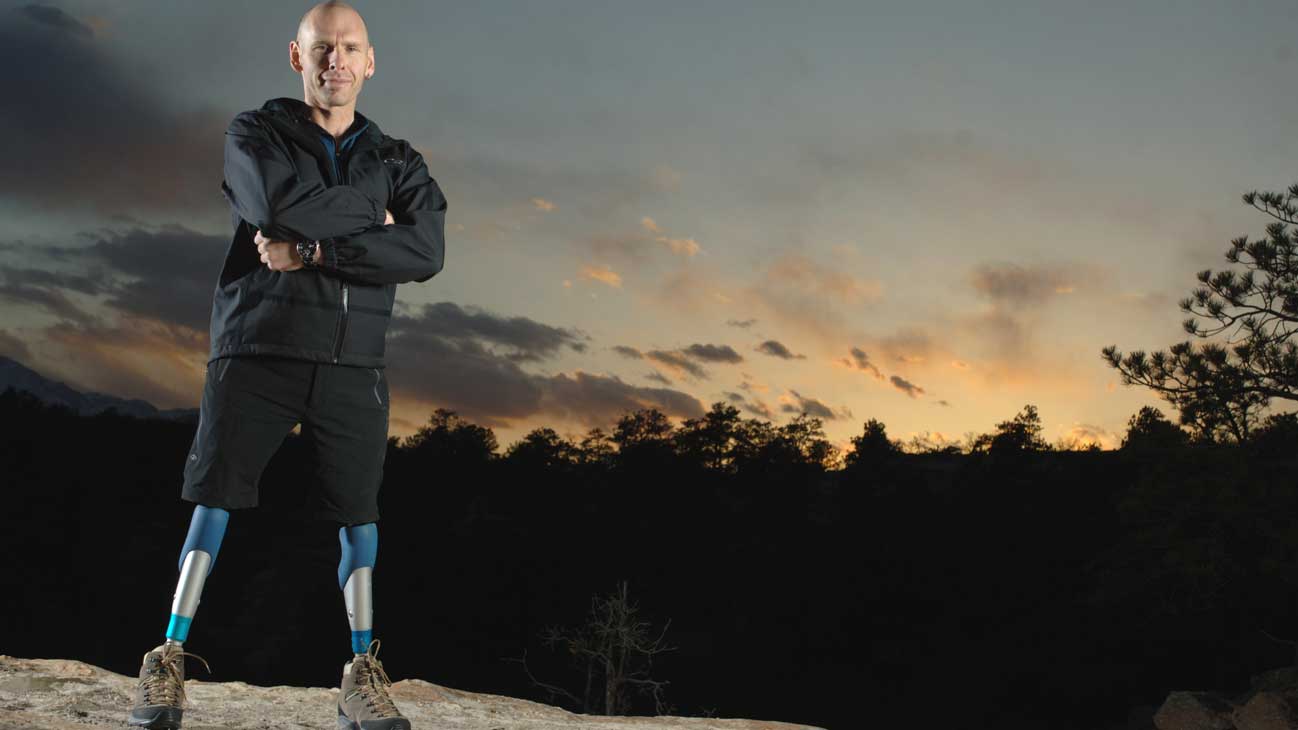Warren Macdonald has climbed over obstacles most people cannot imagine. Having lost both of his legs from a freak accident while he was backpacking off the coast of Australia, Warren not only decided that his injuries wouldn’t slow him down―he decided they would propel him to new heights. Just ten months after the incident, Warren climbed Tasmania’s Cradle Mountain and later summited both Mount Kilimanjaro and El Capitan. Inspiring audiences to turn challenge into change, Warren’s talks foster the desire to seek opportunities and overcome obstacles. Here, Warren writes about the Paralympic Games and the questions the Games have brought up in his mind:
I’m sure you heard the news last week about four Paralympians running a time fast enough to have gotten gold if they had been competing two weeks earlier at the Olympics. And perhaps you presumed, as I did, that finally, after the false hope that was Oscar Pistorius, that not one, but four “blade runners” had finally done it. That we’d finally been pushed headlong into the argument of whether running on artificial limbs was in fact “cheating”. That disability; granted with a few tweaks and add-ons; gave a competitor an advantage.
Of course, you and I both would have been wrong in that presumption, as it wasn’t the “blade runners” who finally took us into a new era, but four visually impaired runners…
That’s right.
Four men who can’t see, ran fast enough to have won Olympic gold medals.
What does that mean?
I’m not sure…
That same week, a PhD student from the university of Ottawa dismissed one of the BBC’s brilliant videos promoting the Paralympians and Paralympics (“We are the Super Humans”, featuring Calgary’s own Alvin Law) as being nothing more than “inspiration porn”. Apparently the video was offensive to ordinary people with a disability in promoting the idea of the “super crip”.
This is where things get confusing for me.
It wasn’t long ago folks with disabilities were shunned members of society.
They still are in many cultures and many parts of the world.
People didn’t want to see us.
My guess is it was because they felt sorry for us, and that made them feel bad.
Now apparently, we’re still making them feel bad, though now, “them” includes other disabled people; offended that we’re making light of disability. That showcasing the “super crips” demeans the struggle of the everyday disabled, that it makes them feel “less able”.
Does that mean the Olympics demeans the struggle of able bodied folks?
Do the Olympics make you feel unworthy?
Or do they, dare I say “inspire” you?
Does that make the Olympics “inspiration porn” as well?
What does it all mean?
Where do we go from here?
What is disability?
What does it mean?
What’s the difference between the disabled living extraordinary lives vs. abled bodied folks doing the same?
Are we all supposed to reign ourselves in a bit; pull our heads in, for fear of upsetting someone?
As I said, I don’t have an answer, but in terms of living with a disability, I’ll say this:
It’s a lot like life, in that it is what you make it to be.
In the case of the four visually impaired runners last week, they’ve decided to run. To run really, really fast.

